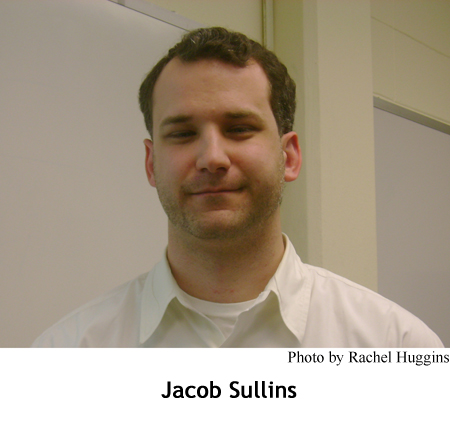FEATURESBe sure to check out this other Feature articles:
Musselwhite makes history an interesting endeavor for students
|
' That can't be done ' : Going one day technology free at Marietta CampusBy Jacob Sullins
Subsequent to those discussions, the students have two essay options: the first is a research paper on a pop culture topic (recent work has included papers on the history and cultural influence of Barbie, MTV and social networking sites like Facebook); the second option is the 24-hour media fast. For the fast, students go without electronic media for 24 hours-no Ipods, computers, cell phones, television, radios, etc. Their essay involves a mix of a journal of their fasting experience and the incorporation of some outside research, often some information about the electronic object that they missed the most during the fast. When I offer this option, the classes are usually split about 50-50-some doing the pop culture research paper, others the fast. I think some students opt for the traditional research paper simply because they can't bring themselves to go without their electronics for a whole day-they've even told me as much. I had a student in the fall read the media fast assignment, then look up at me with shock in his eyes and say, "Are you serious? That can't be done." Most of the students that I teach have grown up with the internet and in the digital age and it's hard for them to imagine a world not saturated by media. The goal of the fast is not to turn them against electronic media, or to turn them into electronic hermits, but to make them aware of the extent of their usage and its influence and power in their lives. And my feeling is that it seems to be working. The essays that I get reflect what I believe is a very real increased awareness of how much of their lives and energy are invested in these worlds and that there are options, such as taking a walk, reading a book, or having face-to-face interactions. Then again, some of the students who do this just try to sleep as much as they can, too. But even that suggests to them that they have difficulty imagining a world without some kind of electronic influence, which I think is helpful. |
 We spend a couple of classes in my English 1102 course discussing issues such as media saturation, online identities and new-media writing and research. The structure and content is very loosely based on some ideas that I pulled from a graduate course that is taught at Emory called Network Cultures.
We spend a couple of classes in my English 1102 course discussing issues such as media saturation, online identities and new-media writing and research. The structure and content is very loosely based on some ideas that I pulled from a graduate course that is taught at Emory called Network Cultures.